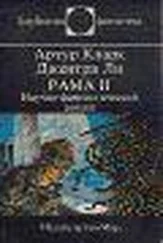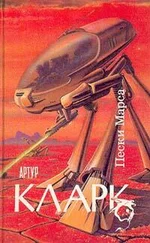Артур Кларк - The pacifist
Здесь есть возможность читать онлайн «Артур Кларк - The pacifist» весь текст электронной книги совершенно бесплатно (целиком полную версию без сокращений). В некоторых случаях можно слушать аудио, скачать через торрент в формате fb2 и присутствует краткое содержание. Год выпуска: 1956, Издательство: King Size Magazines Inc., Жанр: Фантастика и фэнтези, на английском языке. Описание произведения, (предисловие) а так же отзывы посетителей доступны на портале библиотеки ЛибКат.
- Название:The pacifist
- Автор:
- Издательство:King Size Magazines Inc.
- Жанр:
- Год:1956
- ISBN:нет данных
- Рейтинг книги:3 / 5. Голосов: 1
-
Избранное:Добавить в избранное
- Отзывы:
-
Ваша оценка:
- 60
- 1
- 2
- 3
- 4
- 5
The pacifist: краткое содержание, описание и аннотация
Предлагаем к чтению аннотацию, описание, краткое содержание или предисловие (зависит от того, что написал сам автор книги «The pacifist»). Если вы не нашли необходимую информацию о книге — напишите в комментариях, мы постараемся отыскать её.
The pacifist — читать онлайн бесплатно полную книгу (весь текст) целиком
Ниже представлен текст книги, разбитый по страницам. Система сохранения места последней прочитанной страницы, позволяет с удобством читать онлайн бесплатно книгу «The pacifist», без необходимости каждый раз заново искать на чём Вы остановились. Поставьте закладку, и сможете в любой момент перейти на страницу, на которой закончили чтение.
Интервал:
Закладка:
Arthur C. Clarke
The Pacifist
I got to the "White Hart" late that evening, and when I arrived everyone was crowded into the comer under the dartboard. All except Drew, that is: he had not deserted his post, but was sitting behind the bar reading the collected T. S. Eliot. He broke off from "The Confidential Clerk" long enough to hand me a beer and to tell me what was going on.
"Eric's brought in some kind of games machine-it's beaten everybody so far. Sam's trying his luck with it now."
At that moment a roar of laughter announced that Sam had been no luckier than the rest, and I pushed my way through the crowd to see what was happening.
On the table lay a flat metal box the size of a checkerboard, and divided into squares in a similar way. At the corner of each square was a two-way switch and a little neon lamp: the whole affair was plugged into the light socket (thus plunging the dartboard into darkness) and Eric Rodgers was looking round for a new victim.
"What does the thing do?" I asked.
"It's a modification of naughts; and crosses-what the Americans call Tic-Tac-Toe. Shannon showed it to me when I was over at Bell Labs. What you have to do is to complete a path from one side of the board to the other-call it North to South-by turning these switches. Imagine the thing forms a grid of streets, if you like, and these neons are the traffic lights. You and the machine take turns making moves. The machine tries to block your path by building one of its own in the East-West direction-the little neons light up to tell you which way it wants to make a move. Neither track need be a straight line: you can zig-zag as much as you like.
All that matters is that the path must be continuous, and the one to got across the board first wins."
"Meaning the machine, I suppose?"
"Well, it's never been beaten yet."
"Can't you force a draw, by blocking the machine's path, so that at least you don't lose?"
"That's what we're trying: like to have a go?"
Two minutes later I joined the other unsuccessful contestants. The machine had dodged all my barriers and established its own track from East to West. I wasn't convinced that it was unbeatable, but the game was clearly a good deal more complicated than it looked.
Eric glanced round his audience when I had retired. No-one else seemed in a hurry to move forward.
"Ha!" he said. "The very man. What about you, Purvis? You've not had a shot yet."
Harry Purvis was standing at the back of the crowd, with a faraway look in his eye. He jolted back to earth as Eric addressed him, but didn't answer the question directly.
"Fascinating things, these electronic computers," he mused. "I suppose I shouldn't tell you this, but your gadget reminds me of what happened to Project Clausewitz. A curious story, and one very expensive to the American taxpayer."
"Look," said John Wyndham anxiously. "Before you start, be a good sport and let us get our glasses filled. Drew!"
This important matter having been attended to, we gathered round Harry. Only Charlie Willis still remained with the machine, hopefully trying his luck.
"As you all know," began Harry, "Science with a capital S is a big thing in the military world these days. The weapons side-rockets, atom bombs and so on-is only part of it, though that's all the public knows about. Much more fascinating, in my opinion, is the operational research angle. You might say that's concerned with brains rather than brute force. I once heard it defined as how to win wars without actually fighting, and that's not a bad description.
"Now you all know about the big electronic computers that Cropped up like mushrooms in the 1950's. Most of them were built to deal with mathematical problems, but when you think about it You'll realise that War itself is a mathematical problem. It's such a
complicated one that human brains can't handle it-there are far too many variables. Even the greatest strategist cannot see the picture as a whole: the Hiders and Napoleons always make a mistake in the end.
,But a machine-that would be a different matter. A number of bright people realised this after the end of the war. The techniques that had been worked out in the building of ENIAC and the other big computers could revolutionize strategy.
"Hence Project Clausewitz. Don't ask me how I got to know about it, or press me for too many details. All that matters is that a good many megabucks worth of electronic equipment, and some of the best scientific brains in the United States, went into a certain cavern in the Kentucky hills. They're still there, but things haven't turned out exactly as they expected.
"Now I don't know what experience you have of high-ranking military officers, but there's one type you've all come across in fiction. That's the pompous, conservative, stick-in-the-mud careerist who's got to the top by sheer pressure from beneath, who does everything by rules and regulations and regards civilians as, at the best, unfriendly neutrals. I'll let you into a secret: he actually exists. He's not very common nowadays, but he's still around and sometimes it's not possible to find a safe job for him. When that happens, he's worth his weight in plutonium to the Other Side.
"Such a character, it seems, was General Smith. No, of course that wasn't his real name! His father was a Senator, and although lots of people in the Pentagon had tried hard enough, the old man's influence had prevented the General from being put in charge of something harmless, like the coast defense of Wyoming. Instead, by miraculous misfortune, he had been made the officer responsible for Project Clausewitz.
"Of course, he was only concerned with the administrative, not the scientific, aspects of the work. All might yet have been well had the General been content to let the scientists get on with their work while he concentrated on saluting smartness, the coefficient of reflection of barrack floors, and similar matters of military importance. Unfortunately, he didn't.
"The General had led a sheltered existence. He had, if I may borrow from Wilde (everybody else does) been a man of peace, except in his domestic life. He had never met scientists before, and
the shock was considerable. So perhaps it is not fair to blame him for everything that happened.
"It was a considerable time before he realised the aims and objects of Project Clausewitz, and when he did he was quite disturbed. This may have made him feel even less friendly towards his scientific staff, for despite anything I may have said the General was not entirely a fool. He was intelligent enough to understand that, if the Project succeeded, there might be more ex-generals around than even the combined boards of management of American industry could comfortably absorb.
"But let's leave the General for a minute and have a look at the scientists. There were about fifty of them, as well as a couple of hundred technicians. They'd all been carefully screened by the F.B.I., so probably not more than half a dozen were active members of the Communist Party. Though there was a lot of talk of sabotage later, for once in a while the comrades were completely innocent. Besides, what happened certainly wasn't sabotage in any generally accepted meaning of the word. .
"The man who had really designed the computer was a quiet little mathematical genius who had been swept out of college into the Kentucky hills and the world of Security and Priorities before he'd really realised what had happened. He wasn't called Dr. Milquetoast, but he should have been and that's what IT christen him.
"To complete our cast of characters, I'd better say something about Karl. At this stage in the business, Karl was only half-built. Like all big computers, most of him consisted of vast banks of memory units which could receive and store information until it was needed. The creative part of Karl's brain-the analyzers, and integrators-took this information and operated on it, to produce answers to the questions he was asked. Given all the relevant facts, Karl would produce the right answers. The problem, of course, was to see that Karl did have all the facts-he couldn't be expected to get the right results from inaccurate or insufficient information.
Читать дальшеИнтервал:
Закладка:
Похожие книги на «The pacifist»
Представляем Вашему вниманию похожие книги на «The pacifist» списком для выбора. Мы отобрали схожую по названию и смыслу литературу в надежде предоставить читателям больше вариантов отыскать новые, интересные, ещё непрочитанные произведения.
Обсуждение, отзывы о книге «The pacifist» и просто собственные мнения читателей. Оставьте ваши комментарии, напишите, что Вы думаете о произведении, его смысле или главных героях. Укажите что конкретно понравилось, а что нет, и почему Вы так считаете.




![Артур Кларк - The Deep Range [short story]](/books/396208/artur-klark-the-deep-range-short-story-thumb.webp)